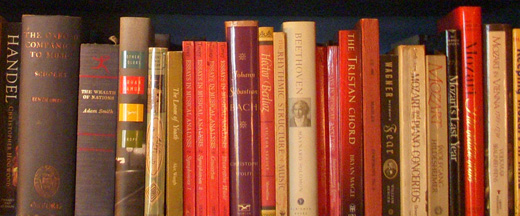Dear Diary: Varieties

My latest resolution, which I have made several times now but not kept, is to refrain from commenting upon one of Eric Patton’s entries at Sore Afraid until I have actually written to him privately. This may put a stop to my comments altogether, but at least I’ll be free of that awful sticky teenaged feeling of having ventured an unappreciated witticism. Eric’s writing always makes me feel playful, but his subject matter makes me feel thoughtful. It’s a problematic blend, best bottled and shelved for a day or two.
As so often happens, it’s the obiter dicta that really caught my attention (even though I had the sense not to comment upon it). In passing, sharpening a point, Eric constructed the opposite of a so-called bucket list. “Puck-It” is, of course, a stand in for the name that I really have in mind; I refrain because I know — and delight in the fact — that many of my readers would be somewhat shocked and possibly offended if I headed an entry, in great big letters, “Fuck-It List.” Either way, such a list itemizes the things that one intends never to know more about than one already does, things that one rather wishes one didn’t know about at all, because they weren’t there to be known.
The subject of Eric’s entry is the variety of religious experience, historically considered, and, at an early point, he is forced to acknowledge that this is a variety in which, per se, many if not most people are uninterested.Â
If I had a United States dollar for every time I heard or read “All religion is equally bad!” I would be able to afford a very nice dinner in one of the fine restaurants in the Time Warner Center at Columbus Circle, located on the southwestern corner of New York’s famed Central Park.Â
Also, it’s much easier to simply reject anything that falls under the rubric of religion than to actually learn about the differences between religions or religious movements or about religious history and philosophy, and it seems more even-handed. I have chosen to do the same for business, sport, finance, cooking, real estate, and most technology, although I am a fan of the wheel, fire, and several metals.
The presence of cooking on this list makes saddens me a bit — I can’t believe that Eric wouldn’t make a very good cook, and it’s the item that, in combination with the others, proclaims Eric as a serious male intellectual. But when I remember that Eric is usually generating laughter on one level or another, I stop worrying: he’s not that serious. Or, rather, is not serious like that.
I think about my own list, which definitely includes sport — and may I pause to say how pleased I was to find another American willing to adopt the English singular, which emphasizes the absence of varieties of athletic experience. I’m certainly squeamish about real estate, but I can’t, as a trained lawyer, claim to be unaware of the varieties of property ownership. Technology interests me hugely, as an extension of cognitive capability, but I suspect that Eric is talking about toys here; if so, I share the allergy. (This would include the universe of automobiles.) Where we differ most is on the matter of business. I used to feel that business was a soul-destroying activity, but when I realized that it was only soul-destroying for me (and a few others), I began to appreciate it as the force that really does make the world go round. I’m not talking about “capitalism” here. I’m talking about the kind of commerce in which the proprietor knows most of his customers by name. Not necessarily small business, by the way: J P Morgan knew most of his customers by name.
But I have awakened to the fact that finance — a daring and often dodgy variety of the banking experience — has nothing to do with business. Repeat this often. Nor does it have much to do with retail investment (college and retirement funds) or the varieties of insurable risk. Finance ought to be occasional, triumphant, and apotheothetical, its gods invoked from time to time for the subscription of grand public goals such as the Triborough Bridge or the Museum of Television and Radio. Everyday finance — the trading routine of Goldman Sachs — would be indefensible if it were more generally understood. And advertising is to creativity as finance is to business: parasitical and mindless. At best, it is catalytic, as vital as vitamin A, and as lethal in greater than small amounts.
I have another list, one that Eric’s too young for yet. It comprises things that I know a lot about, so much in fact that they’re no longer really interesting. I’m not sure (to pick a slight example) that I can ever read PG Wodehouse again. I can’t take the thing known as “conceptual art” much more seriously than the fabulous accomplishments of other people’s little children. I’m shocked by how little I miss having my own garden, and knowing the Latin name of every plant in it. I pray that I remain ignorant of war, that worst variety of religious experience.

















